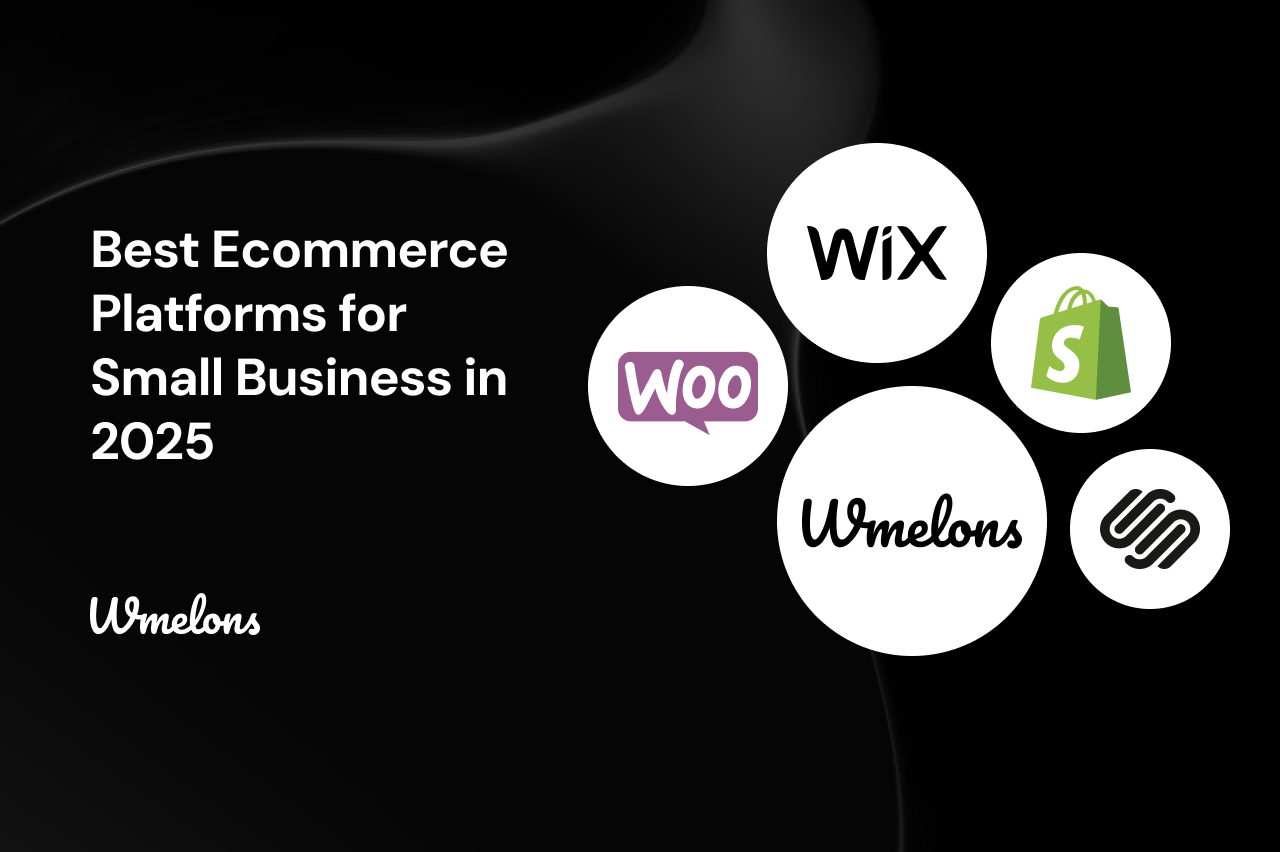5 Best Ecommerce Platforms for Small Businesses in 2025
The Middle East and North Africa (MENA) region is experiencing an e-commerce revolution. By 2025,...
The Middle East and North Africa (MENA) region is experiencing an e-commerce revolution. By 2025, the market is projected to surpass $50 billion, driven by tech-savvy youth, rising smartphone penetration (over 70%), and a shift toward digital payments.
However, challenges like fragmented logistics, preference for cash-on-delivery (still 35% of transactions), and cultural nuances demand platforms tailored to local needs. For small businesses, choosing the right e-commerce solution can make or break success.
For small businesses, selecting the right platform is no longer just about setting up an online store—it’s about future-proofing growth in an increasingly competitive digital economy.
Whether you’re a budding startup or an established local brand aiming to expand, the right platform can transform logistical challenges into opportunities for engagement and loyalty.
In this guide, we unveil the 5 best ecommerce platforms for small businesses in 2025, evaluating their ability to harness emerging trends, streamline operations, and deliver standout customer experiences—without breaking the bank.
Let’s explore the tools poised to elevate your venture in the new era of digital commerce.
5 Best Ecommerce Platforms for Small Businesses in 2025
Wmelons
Wmelons is the perfect ecommerce solution for businesses in the Middle East and North Africa. This all-in-one platform comes with everything you need to sell online, in person, on social media, and across marketplaces—without any coding skills required.
With Wmelons, you can design a stunning store using a wide selection of professionally crafted themes. Our intuitive website builder makes customization effortless, so you can create a brand experience that stands out.
The platform features a seamless checkout system with competitive transaction fees, while Wmelons POS enables smooth in-person sales processing. Plus, merchants benefit from exclusive shipping rates with trusted regional and international carriers.
When it comes to web hosting, Wmelons offers unlimited bandwidth and secure online storage—meaning your business can scale without worrying about rising costs.
Shopify
Shopify is the go-to ecommerce platform for small businesses, offering everything you need to sell online, in person, on social media, and across marketplaces. With its user-friendly website builder, you can design a professional store using over 100 expertly crafted themes—no coding required.
Enjoy a seamless shopping experience with Shopify’s built-in checkout, which keeps transaction fees low. Need to sell in person? Shopify POS lets you process sales smoothly, whether at a retail location, pop-up shop, or market. Plus, Shopify merchants get discounted shipping rates from USPS, UPS, DHL Express, and more.
Scaling your business is hassle-free with Shopify’s reliable hosting, unlimited bandwidth, and secure online storage—so you never have to worry about extra costs as you grow.
WooCommerce
WooCommerce is the official online selling platform for WordPress, transforming the world’s most popular blogging platform into a powerful ecommerce solution for small businesses. What started as a simple tool for bloggers has evolved into a full-fledged website builder, offering seamless integration with WooCommerce to enable online sales.
As an open-source platform, WooCommerce offers unmatched customization—perfect for those with the technical skills to design and code their own websites. Whether you're tweaking themes or adding custom features, WooCommerce gives you full control over your store’s look and functionality.
Like Shopify, WooCommerce supports third-party integrations to extend its capabilities. While the core WooCommerce plugin is free, scaling your business may require paid add-ons for advanced features like marketing tools, payment gateways, and inventory management.
Squarespace
Squarespace is a user-friendly platform that makes building an online store effortless. With beautifully designed templates, drag-and-drop tools, and reliable functionality, it’s a great choice for small businesses looking to establish a strong online presence.
Originally launched as a website builder, Squarespace has expanded its features to support ecommerce. While many users sell services rather than physical products, the platform still offers solid tools for product-based businesses.
Key features include built-in scheduling and calendar integrations, email marketing tools, social media connectivity, and embeddable maps to help customers find your physical location. If you're running a subion-based business, Squarespace also supports recurring billing to streamline payments.
Wix
Wix offers an easy-to-use website builder with powerful ecommerce features, making it a great option for small businesses. With a paid plan, you can unlock essential selling tools like order tracking, online payments, multichannel selling, and abandoned cart recovery to maximize your store’s performance.
For those focused on growth, Wix provides access to analytics tracking—helping you monitor key ecommerce metrics and make data-driven decisions.
When it comes to design, Wix offers over 500 customizable templates, allowing you to create a unique and professional storefront. The drag-and-drop interface makes customization simple, even for beginners.
Wix also supports subion-based billing, making it ideal for membership businesses. Plus, if you're interested in dropshipping, Wix integrates with third-party providers to expand your product offerings without managing inventory.
Conclusion
The five platforms highlighted in this guide stand out for their ability to blend innovation with practicality, offering tools that cater to everything from AI-driven personalization and AR-powered shopping journeys to decentralized payment systems and hyper-efficient logistics.
While each platform excels in unique areas—whether affordability, scalability, or cutting-edge integrations—the best choice ultimately hinges on your business’s specific goals, budget, and vision.
By prioritizing agility, security, and customer-centric innovations, small businesses can not only compete in today’s fast-paced digital arena but also carve out a distinctive brand presence.
As technology continues to redefine commerce, investing in a future-ready platform isn’t just an operational decision—it’s a strategic leap toward long-term success in the ever-evolving world of online retail.
